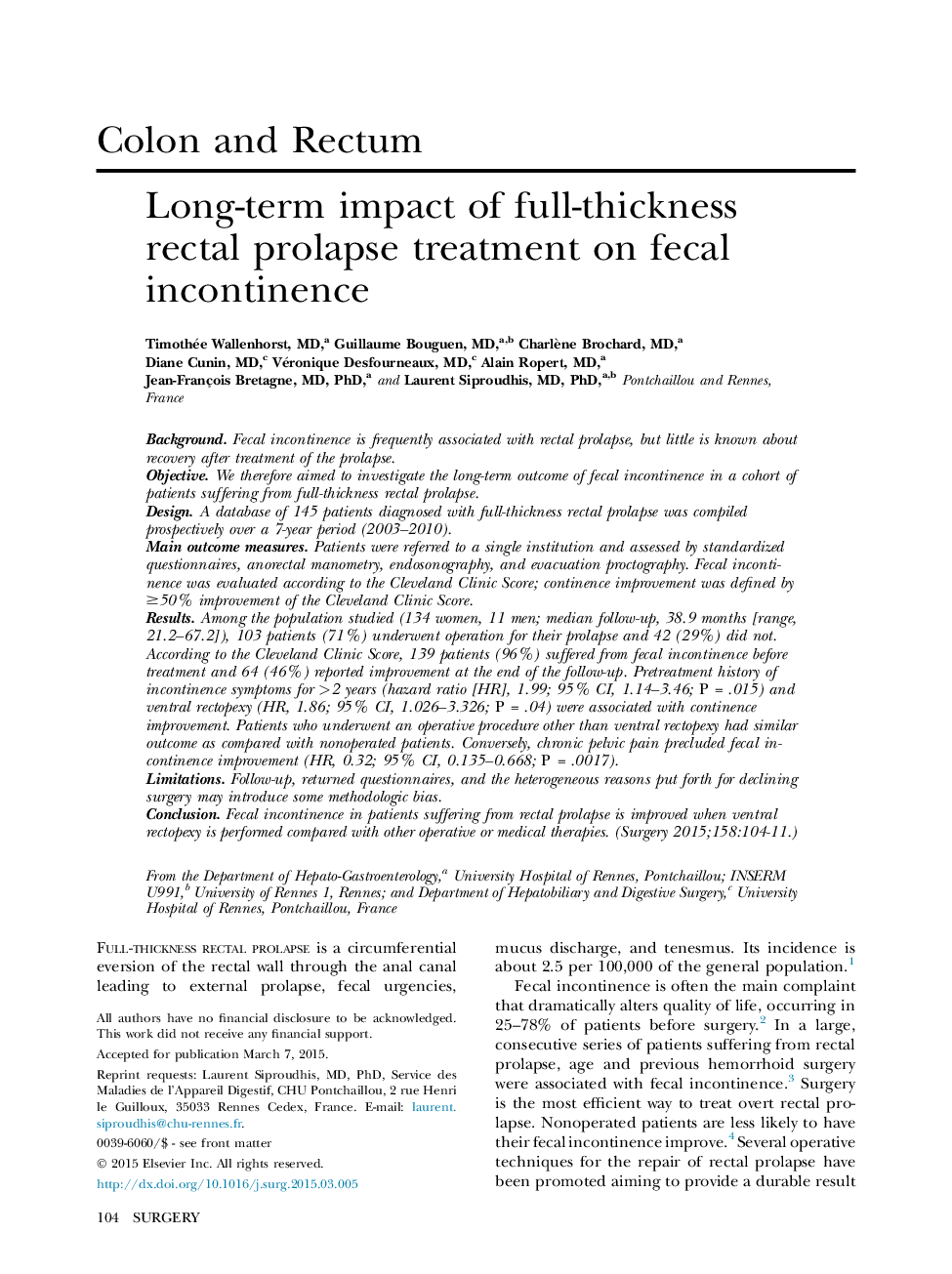| کد مقاله | کد نشریه | سال انتشار | مقاله انگلیسی | نسخه تمام متن |
|---|---|---|---|---|
| 6255301 | 1289231 | 2015 | 8 صفحه PDF | دانلود رایگان |
BackgroundFecal incontinence is frequently associated with rectal prolapse, but little is known about recovery after treatment of the prolapse.ObjectiveWe therefore aimed to investigate the long-term outcome of fecal incontinence in a cohort of patients suffering from full-thickness rectal prolapse.DesignA database of 145 patients diagnosed with full-thickness rectal prolapse was compiled prospectively over a 7-year period (2003-2010).Main outcome measuresPatients were referred to a single institution and assessed by standardized questionnaires, anorectal manometry, endosonography, and evacuation proctography. Fecal incontinence was evaluated according to the Cleveland Clinic Score; continence improvement was defined by â¥50% improvement of the Cleveland Clinic Score.ResultsAmong the population studied (134 women, 11 men; median follow-up, 38.9 months [range, 21.2-67.2]), 103 patients (71%) underwent operation for their prolapse and 42 (29%) did not. According to the Cleveland Clinic Score, 139 patients (96%) suffered from fecal incontinence before treatment and 64 (46%) reported improvement at the end of the follow-up. Pretreatment history of incontinence symptoms for >2 years (hazard ratio [HR], 1.99; 95% CI, 1.14-3.46; P = .015) and ventral rectopexy (HR, 1.86; 95% CI, 1.026-3.326; P = .04) were associated with continence improvement. Patients who underwent an operative procedure other than ventral rectopexy had similar outcome as compared with nonoperated patients. Conversely, chronic pelvic pain precluded fecal incontinence improvement (HR, 0.32; 95% CI, 0.135-0.668; P = .0017).LimitationsFollow-up, returned questionnaires, and the heterogeneous reasons put forth for declining surgery may introduce some methodologic bias.ConclusionFecal incontinence in patients suffering from rectal prolapse is improved when ventral rectopexy is performed compared with other operative or medical therapies.
Journal: Surgery - Volume 158, Issue 1, July 2015, Pages 104-111
